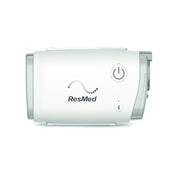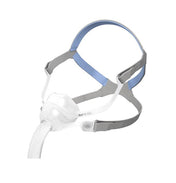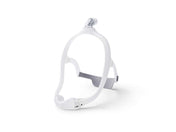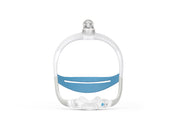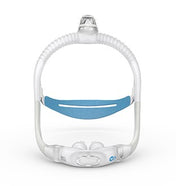Why Sleep Matters
Most of us intuitively know that sleep is beneficial for us. Go a night without a good night’s rest and we feel lethargic and tired. String a few nights of poor quality sleep together and we feel down right terrible. Conversely, we all know the feeling of waking up from a good night’s rest ready to take on the world!
Benefits of Sleep:
Although we spend over 25% of our lives doing it, we humans are still not entirely sure WHY we sleep. But scientific research over the years has concluded that sleep plays a critical role in many vital functions, including:
Immune Function
It is natural for people to go to bed when they are sick. Substances produced by the immune system to help fight infection also cause fatigue. One theory proposes that the immune system evolved "sleepiness inducing factors" because inactivity and sleep provided an advantage: those who slept more when faced with an infection were better able to fight that infection than those who slept less. In fact, research in animals suggests that those animals who obtain more deep sleep following experimental challenge by microbial infection have a better chance of survival.
Metabolism and Weight Control
During sleep, our bodies secrete hormones that help to control appetite, energy metabolism, and glucose processing. Obtaining too little sleep upsets the balance of these and other hormones. For example, poor sleep leads to an increase in the production of cortisol, often referred to as the "stress hormone." Poor sleep is also associated with increases in the secretion of insulin following a meal. Insulin is a hormone that regulates glucose processing and promotes fat storage; higher levels of insulin are associated with weight gain, a risk factor for diabetes.
Insufficient sleep is also associated with lower levels of leptin, a hormone that alerts the brain that it has enough food, as well as higher levels of ghrelin, a biochemical that stimulates appetite. As a result, poor sleep may result in food cravings even after we have eaten an adequate number of calories. We may also be more likely to eat foods such as sweets that satisfy the craving for a quick energy boost. In addition, insufficient sleep may leave us too tired to burn off these extra calories with exercise.
Memory
Researchers now hypothesize that slow-wave sleep (SWS), which is deep, restorative sleep, also plays a significant role in declarative memory by processing and consolidating newly acquired information. Studies of the connection between sleep and declarative memory have had mixed results, and this is an area of continued research.
Learning
When we are sleep deprived, our focus and attention suffer, making it difficult to process new information. If our brains and neurons are not adequately rested, neurological function suffers and we lose the ability to access previously learned information.
In addition, our interpretation of events may be affected. We lose our ability to make sound decisions because we can no longer accurately assess the situation, plan accordingly, and choose the correct behavior. Judgment becomes impaired.
Consequences of Inadequate Sleep:
In today’s world, most of us don’t get enough sleep. We are a society that is constantly trading valuable sleep time for just a few more hours of work or play. While we all know intuitively that this isn’t a good trade-off, science is just starting to understand the magnitude of the detrimental impact this lack of sleep can have. Inadequate sleep carries both short and long-term consequences that should not be ignored.
In the short term, inadequate sleep affects judgement, mood, ability to learn and retain information, and increases the risk of serious accident or injury. Research into a particularly prevalent Sleep Disorder known as Obstructive Sleep Apnea has shown that an individual with untreated Sleep Apnea is:
- Two times as likely to be involved in a traffic accident
- 70% more likely to be involved in a work-related accident
- Twice as likely to be involved in a fatal work-related accident
- Three times as likely to get divorced
- Three time as likely to sleep apart from their partner
In the long term, the consequences of inadequate sleep can be even more pronounced. Chronic sleep deprivation can lead to a host of health problems including:
Obesity
Several studies have linked insufficient sleep and weight gain. For example, studies have shown that people who habitually sleep less than six hours per night are much more likely to have a higher than average body mass index (BMI) and that people who sleep eight hours have the lowest BMI. Sleep is now being seen as a potential risk factor for obesity along with the two most commonly identified risk factors: lack of exercise and overeating. Research into the mechanisms involved in regulating metabolism and appetite are beginning to explain what the connection between sleep and obesity might be.
During sleep, our bodies secrete hormones that help to control appetite, energy metabolism, and glucose processing. Obtaining too little sleep upsets the balance of these and other hormones. For example, poor sleep leads to an increase in the production of cortisol, often referred to as the "stress hormone." Poor sleep is also associated with increases in the secretion of insulin following a meal. Insulin is a hormone that regulates glucose processing and promotes fat storage; higher levels of insulin are associated with weight gain, a risk factor for diabetes.
Insufficient sleep is also associated with lower levels of leptin, a hormone that alerts the brain that it has enough food, as well as higher levels of ghrelin, a biochemical that stimulates appetite. As a result, poor sleep may result in food cravings even after we have eaten an adequate number of calories. We may also be more likely to eat foods such as sweets that satisfy the craving for a quick energy boost. In addition, insufficient sleep may leave us too tired to burn off these extra calories with exercise.
Diabetes
Researchers have found that insufficient sleep may lead to type 2 diabetes by influencing the way the body processes glucose, the high-energy carbohydrate that cells use for fuel. One short-term sleep restriction study found that a group of healthy subjects who had their sleep cut back from 8 to 4 hours per night processed glucose more slowly than they did when they were permitted to sleep 12 hours. Numerous epidemiological studies also have revealed that adults who usually slept less than five hours per night have a greatly increased risk of having or developing diabetes.
In addition, researchers have correlated obstructive sleep apnea—a disorder in which breathing difficulties during sleep lead to frequent arousals—with the development of impaired glucose control similar to that which occurs in diabetes.
Heart Disease and Hypertension
Studies have found that a single night of inadequate sleep in people who have existing hypertension can cause elevated blood pressure throughout the following day. This effect may begin to explain the correlation between poor sleep and cardiovascular disease and stroke. For example, one study found that sleeping too little (less than six hours) or too much (more than nine hours) increased the risk of coronary heart disease in women.
There is also growing evidence of a connection between obstructive sleep apnea and heart disease. People who have apnea typically experience multiple awakenings each night as a result of the closing of their airway when they fall asleep. In addition to these sleep disturbances, apnea sufferers also experience brief surges in blood pressure each time they wake up. Over time, this can lead to the chronic elevation of blood pressure known as hypertension, which is a major risk factor for cardiovascular disease. Fortunately, when sleep apnea is treated, blood pressure may go down.
Mental Health
Given that a single sleepless night can cause people to be irritable and moody the following day, it is conceivable that chronic insufficient sleep may lead to long-term mood disorders. Chronic sleep issues have been correlated with depression, anxiety, and mental distress. In one study, subjects who slept four and a half hours per night reported feeling more stressed, sad, angry, and mentally exhausted. In another study, subjects who slept four hours per night showed declining levels of optimism and sociability as a function of days of inadequate sleep. All of these self-reported symptoms improved dramatically when subjects returned to a normal sleep schedule.
Early Mortality
Considering the many potential adverse health effects of insufficient sleep, it is not surprising that poor sleep is associated with lower life expectancy. Data from three large cross-sectional epidemiological studies reveal that sleeping five hours or less per night increased mortality risk from all causes by roughly 15 percent.
How Sleep Works
Every night, nearly all of our bodies undergo a remarkable change. And yet, we do not think about or contemplate sleep WHILE we’re sleeping. As a result, few of us can really define what sleep is, even though we spend over 25% of our lives doing it!
For most of us, we can define sleep as a period of reduced activity and consciousness in which our mind and body rejuvenates itself. For scientists, sleep is defined based on brain activity patterns and physiological changes as described below:
Physiological Changes
CONTENT TO COME
Brain Activity
CONTENT TO COME
Body Temperature
CONTENT TO COME
Respiratory Changes
CONTENT TO COME
Cardiovascular Activity
CONTENT TO COME
Dreams
CONTENT TO COME
How to Sleep Better
In today's world, we are constantly bombarded with reasons NOT to sleep. Work, family, children's activities, television, social lives - all can present obstacles to sleep. If you feel like you are not getting adequate sleep, you should consult your Doctor, as you may have a sleep disorder that requires treatment. However, there are things you can do TONIGHT to help improve your sleep hygiene. Try the tips below and you may just have the best sleep you've had in a while!
1. Avoid caffeine, alcohol, and nicotine 4 hours before bedtime
Caffeine and tobacco are stimulants that can keep you awake, or increase your awakenings throughout the night. Many people believe alcohol helps to bring on sleep; however, after a few hours it acts a stimulant and can increase awakenings. This causes fragmented and lower quality sleep. Limiting these substances to at least 4 hours before bedtime will improve your sleep quality.
2. Turn your bedroom into a Sleep Zone
Your brain should associate your bedroom as a place for two things: sleep and sex. Avoid bringing work or electronics such as television or laptops into the bedroom. Eliminate outside noise through the use of earplugs or white noise machines. Consider black out curtains or an eye mask to create darkness, which cues your brain that it’s bedtime. And ensure the room is comfortably cool (between 16-23 degrees Celsius). Your body temperature naturally drops during sleep, and by keeping a cooler bedroom you can promote this naturally occurring phenomenon (this is why it often feels good to dangle one leg outside of the covers!).
3. Establish a pre-sleep routine
Our brains are usually racing from one thing to another throughout the day. Like a racecar or freight train, you can’t expect your brain to go from 100mph to 0mph immediately! Prepare your body for sleep by establishing a routine of relaxing activity ~1 hour prior to bed. This could include watching television, reading a book, taking a bath (the rise then fall in body temperature promotes sleepiness), or mindfulness meditation. If you find you take problems to bed with you, write down a To-Do list prior to bed to get them off your brain.
4. Remove the clock from your bedside table
Staring at the clock when you can’t sleep only creates stress, making it harder to fall asleep. Turn the clock away from you or remove it from the room altogether.
5. Catch some rays
Natural light helps keep your body’s natural sleep-wake cycle in order. Getting outside for a 30 minute walk during the day will help keep your body on track.
6. Set a consistent wake-up time
Waking up at the same time every day is the best way to set your body’s internal clock. This will help ensure you’re tired at the end of the day and ready for sleep. A recent UK study showed 60% of people have the hardest time falling asleep on Sunday night, and find it easiest to fall asleep on Thursday. Why? Likely due to “social jetlag”, whereby people go to bed later and wake up later on the weekend – effectively shifting their biological clock as if they’d traversed time zones. By Thursday their internal clock is back on track, only to be thrown off again on Friday! Stick to the same schedule as much as possible, even on weekends.
7. Avoid napping during the day
Napping, as good as it feels at the time, will decrease sleep drive and make it more difficult to fall asleep at night. Avoid napping as much as possible, especially later in the day.
8. Exercise early
Exercise helps promote deep, restful sleep if done at least 2-3 hours prior to bedtime. Exercising intensely too close to bedtime will stimulate the mind and body and release a stress hormone called cortisol, which can delay sleep.
9. Lighten up on evening meals
Eating a heavy meal right before bed is likely to keep you awake and uncomfortable. Finish dinner several hours before bed, and try to avoid foods that can cause you indigestion.
10. Avoid late-night screen time
Your phone and laptop emit blue light, which has been shown to stimulate the brain and disrupt your internal clock. Avoid reading on your phone or laptop in the hour before bedtime. If you must be on your phone, take advantage of your phone’s night mode (on iPhone, go to Settings>Display & Brightness>Nightshift) to reduce the amount of bluelight after 9 or 10pm.



